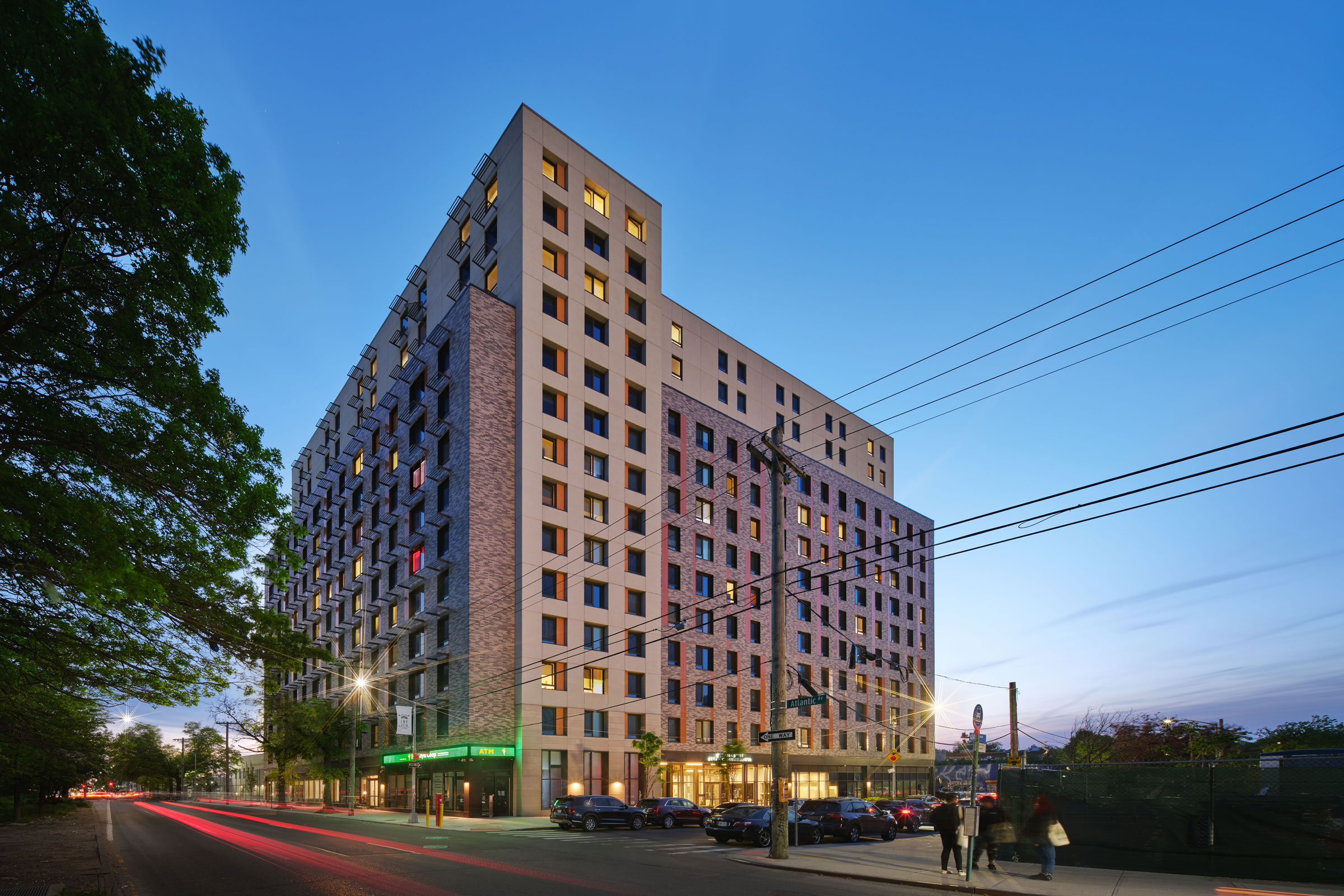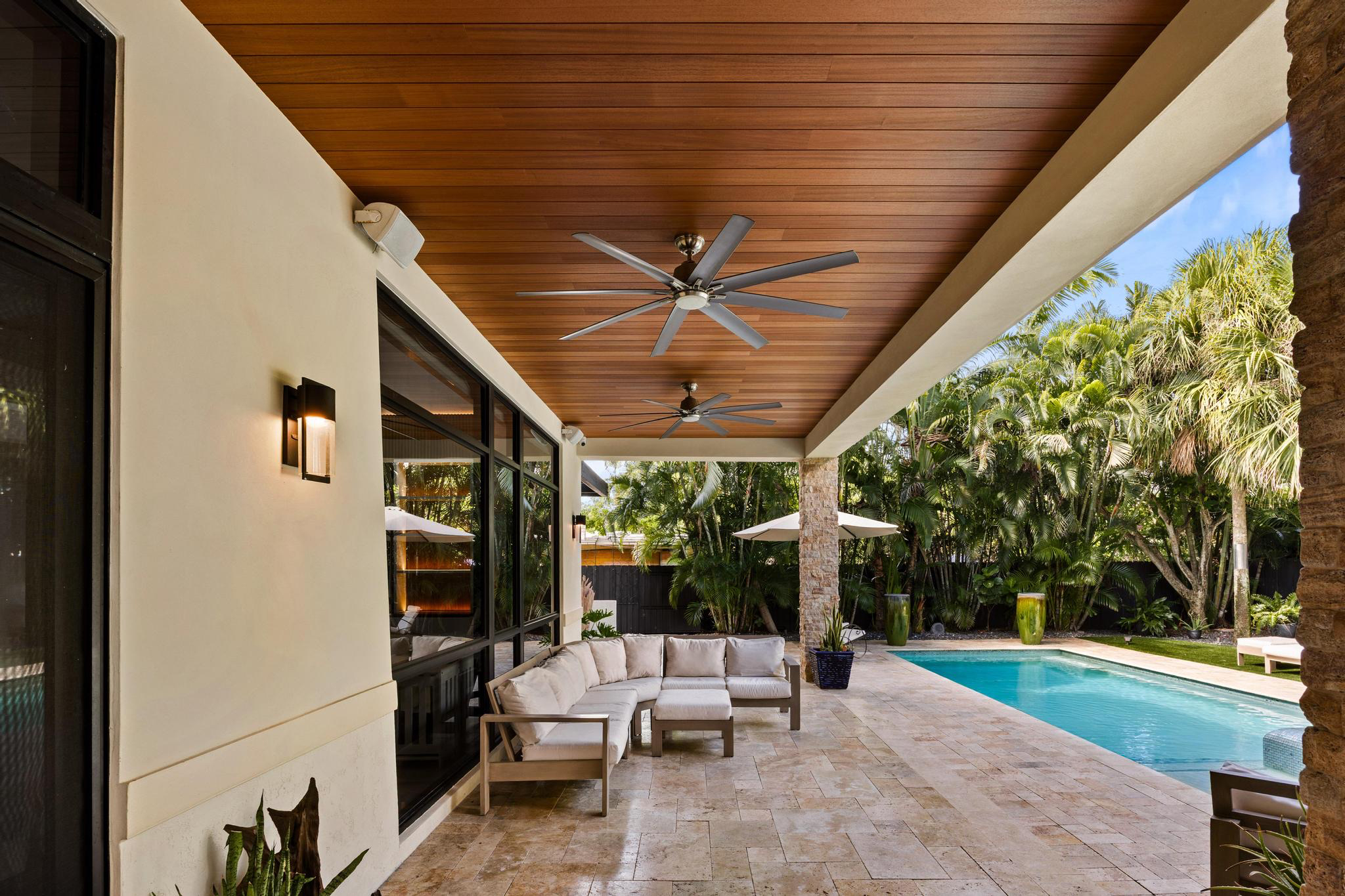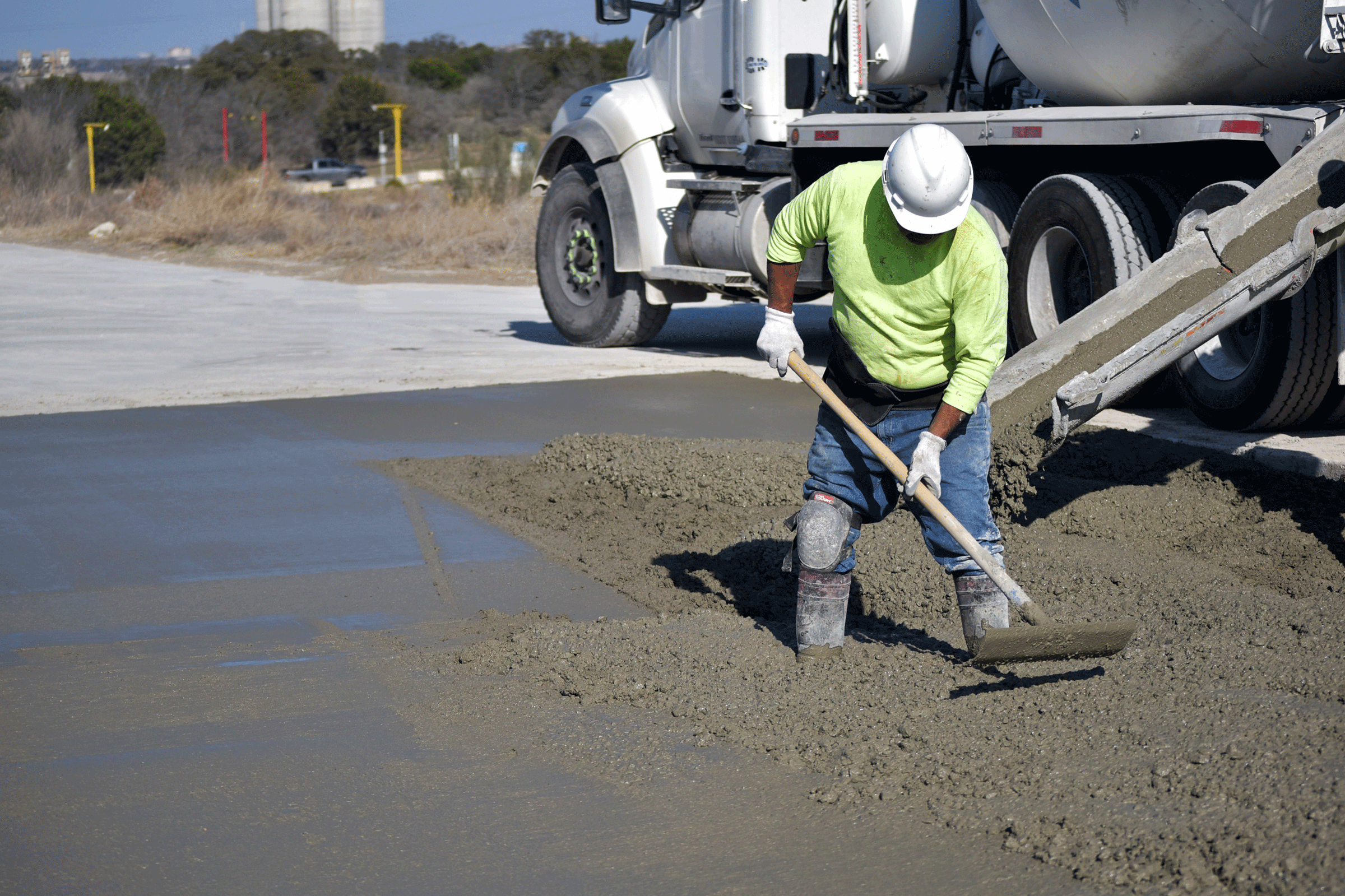Story at a glance:
- Phius recently announced the winners of the ninth annual Passive Projects Design Competition.
- Passive buildings must have proper solar orientation, optimal insulation, high-performance windows and doors, an airtight enclosure, and balanced ventilation.
Each year the Passive House Institute US, more commonly known as Phius, celebrates outstanding designs that meet passive house standards. Phius-certified projects are the most energy-efficient and comfortable buildings in the world. Passive buildings are defined by these five passive design principles:
Using continuous insulation throughout the building envelope to minimize or eliminate thermal bridging
Building a well-detailed and extremely airtight building envelope, preventing infiltration of outside air and loss of conditioned air while increasing envelope durability and longevity
Employing high-performance windows (double or triple-paned) and doors. Solar gain is managed to exploit the sun’s energy for heating purposes in the heating season and to minimize overheating during the cooling season.
Using some form of balanced heat- and moisture-recovery ventilation to significantly enhance indoor air quality
Minimizing the space conditioning system because of lower space conditioning loads
The winners of the 2023 Phius Design Competition are:
Best Overall Project & Low-Rise Multifamily Winner: Vital Brooklyn
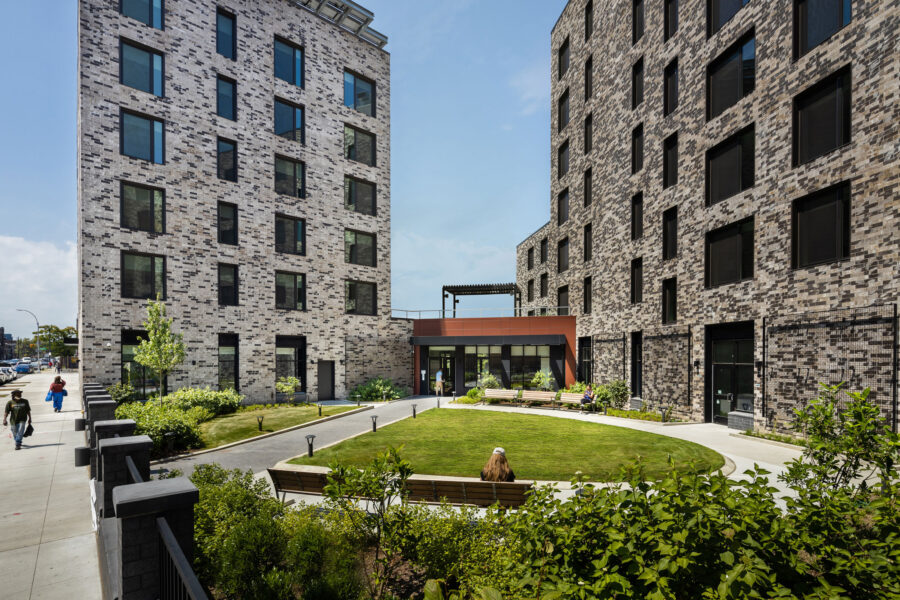
Vital Brooklyn was designed as part of an effort to improve Central Brooklyn’s low-income residents’ access to health, wellness, and housing. Photo courtesy of Phius
This multifamily, 160-unit new construction is the first project in New York State’s Vital Brooklyn Initiative—a program designed to improve Central Brooklyn’s low-income residents’ access to health, wellness, and housing, according to Dattner Architects.
The two-building Passive House development in the Brownsville neighborhood is located near the Brookdale Hospital aims to set a new benchmark for high-quality, sustainable, affordable housing. Solar panels, green roofs and plantings, high-performance mechanical systems, LED lighting, and many other energy efficient measures help to make this project a sustainable success.
Vital Brooklyn was also awarded Recognition of Excellence in Multi-Use.
Project: Vital Brooklyn
Location: Brooklyn, New York
Architect: Dattner Architects
CPHC: Carmel Pratt – Bright Power Inc.
Builder: Monadnock Construction
QA/QC: Elise Fabbri – Bright Power Inc.
Owner/Developer: MDG Design and Construction
Single-Family Winner: Iowa City Nest
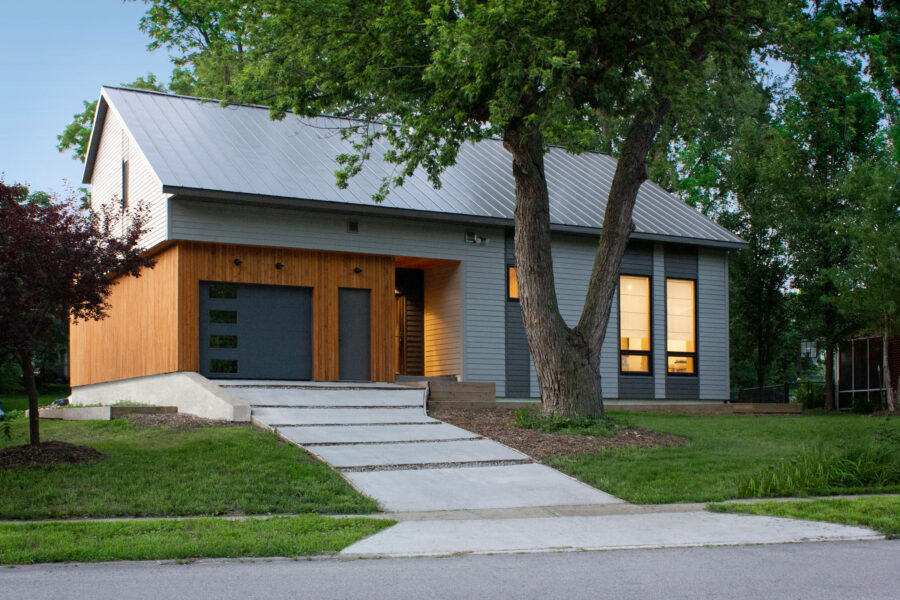
The Iowa City Nest residence is an all-electric, low-carbon passive house. Photo by Carl Sterner
This all-electric, low-carbon passive house sits on a tight lot with existing trees the homeowners wanted to preserve. Materials throughout the home were carefully selected to reduce embodied carbon, promote excellent indoor air quality, and minimize ongoing maintenance. Cellulose insulation in walls and roof, engineered wood siding, metal roofing, and low-emitting wood floors were among the standout choices at the Iowa City Nest residence.
Project: Iowa City Nest
Location: Iowa City, Iowa
Architect: Sol design + consulting
CPHC: Sanyog Rathod & Carl Sterner
Builder: Oak Tree Homes
QA/QC: Chris Dwyer
Source Zero Winner: Shawme Lake Passive House
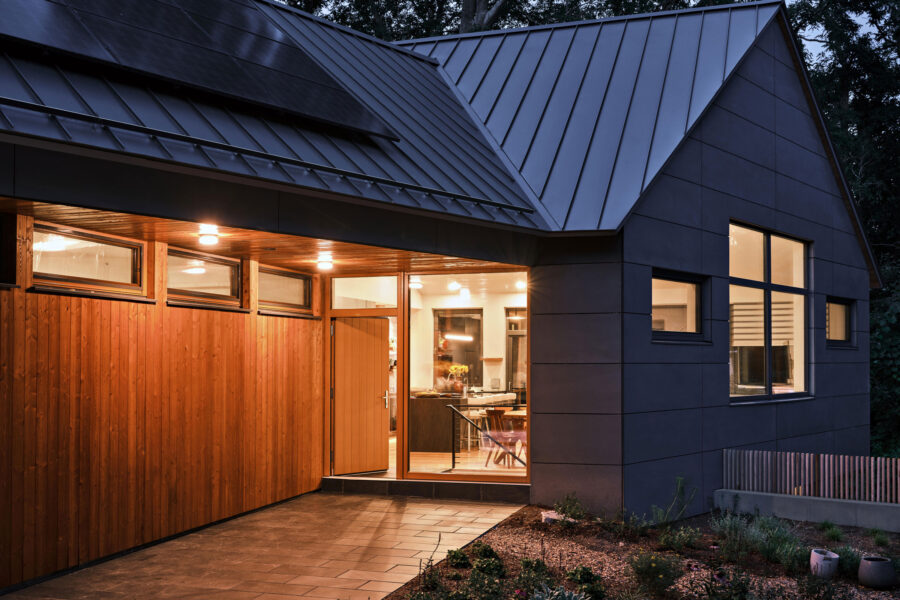
This Shawme Lake project was the last in its neighborhood to be developed. It sits on a tight site flanked closely by neighbors, with public conservation land to the west, the road to the south, and a wooded lake to the east. Photo by Olivia Bogert
The exterior of this home is clad in FSC-certified larch and durable, zero-maintenance cementitious panels designed to endure for more than a century. PHIUS+ 2018 and Source Zero–certified, the project also stands to provide lasting comfort for occupants at a minimal cost and without the use of fossil fuels, according to the architects.
The firm says the building reimagines Cape Cod style and adds airtight construction, double-thick walls packed with 12 inches of dense cellulose, and a heat-recovering fresh air ventilation system.
Project: Shawme Lake Passive House
Location: Sandwich, MA
Architect: Kaplan Thompson Architects
CPHC: Kai Fast
Builder: The Valle Group
QA/QC: Home Energy Raters
Owner: Diane and Denis Boucher
High-Rise Multifamily Winner & Recognition for Excellence in Multi-Use: Chestnut Commons
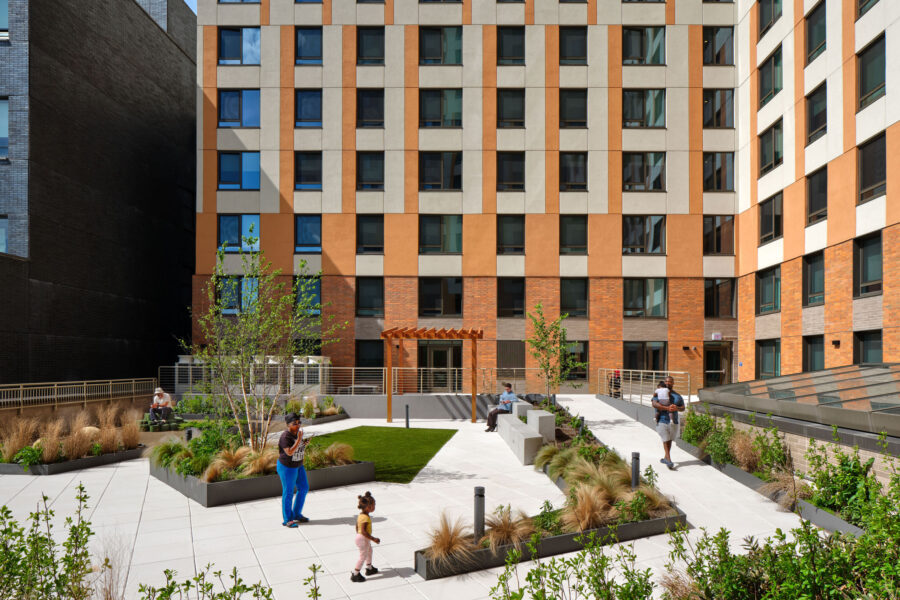
The 14-story Chestnut Commons building is designed to Passive House standards and in compliance with NYC Active Design Guidelines to promote healthy living for residents. Photo courtesy of Phius
This Brooklyn project offers affordable housing and community for formerly homeless and low-income households, with 275 affordable housing apartments, communal spaces, and a landscaped roof terrace.
The community-centric design integrates a satellite community college campus, a food manufacturing incubator that provides job training, and a credit union. This project was also awarded Best Project by a Young Professional.
Project: Chestnut Commons
Location: Brooklyn
Architect: Dattner Architects
CPHC: Bright Power
Builder: Lettire Construction
QA/QC: Bright Power
Owner/Developer: Cypress Hills Local Development Corp, Urban Builders Collective, and MHANY Management
Affordable Housing Winner: Verdant
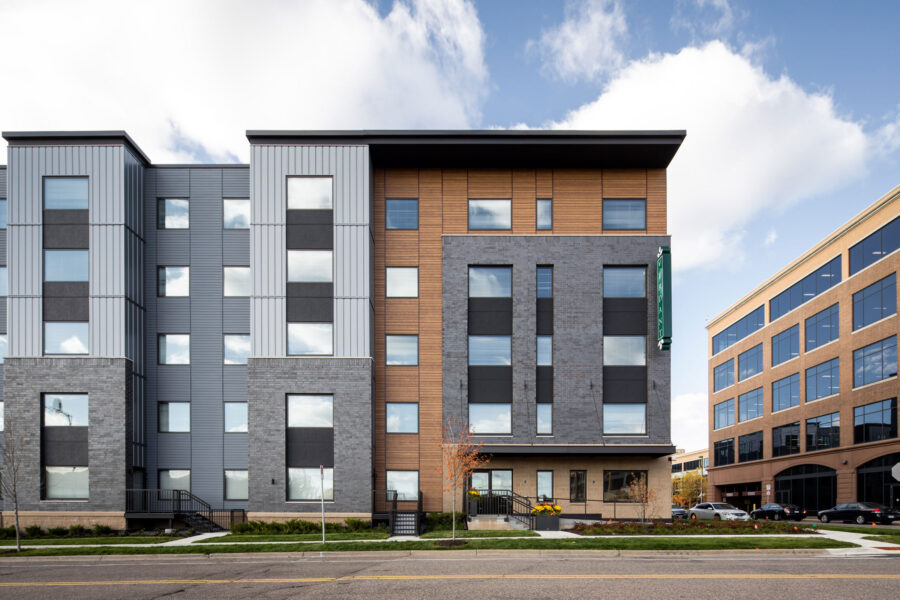
Verdant is a highly sustainable, five-story, wood-framed affordable housing development near the Mississippi River. Photo courtesy of Phius
This five-story, wood-framed affordable housing project near the Mississippi River emphasizes modern multi-family architecture, including a concrete and masonry underground parking garage on the lowest level with 72 covered parking stalls.
A double wall insulated with mineral wool helped this project meet the high R-values required for Phius certification as well as the non-combustibility requirements of the building code.
Project: Verdant
Location: St. Paul, MN
Architect: Kaas Wilson Architects
CPHC: Precipitate
Builder: Frana Companies
QA/QC: Center for Energy and Environment
Owner/Developer: Sherman Associates
Retrofit Winner: Ames Residence
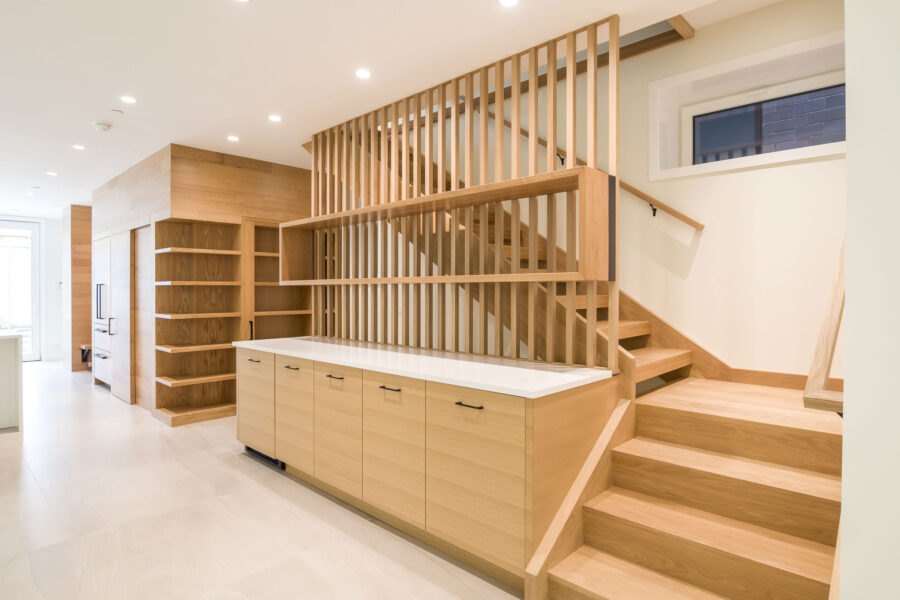
The Ames residence in Chicago was a passive house retrofit. Photo by Breanne Trammell
This 3,400-square-foot home was a retrofit project that achieved final Phius certification in 2022. Chicago-based architect Farr Associates is known for their sustainable designs, with an expert team that includes passive house consultants. They work to consistently utilize local standards for high-efficiency and low-energy building practices.
Project: Ames Residence
Location: Chicago
Architect: Farr Associates Architecture & Urban Design
CPHC: Gabe Wilcox
Builder: Zoetic Building Consultants
QA/QC: EcoAchievers
Community Development Winner: 2nd and Delaware Apartments
Overlooking the Missouri River, the concrete-based 2nd and Delaware Apartment building was the largest Passive House structure in the world at the time of construction, according to Jeffery White Architect. The project uses approximately 90% less energy than an average building of similar size.
Project: 2nd and Delaware Apartments
Location: Kansas City, MO
Architect: Jeffery White Architect
CPHC: Prudence Ferreira
Builder: Crossland Construction
QA/QC: Erik Henson
Owner/Developer: Arnold Development & Yarco
More information, including honorable mentions, can be found at phius.org.

